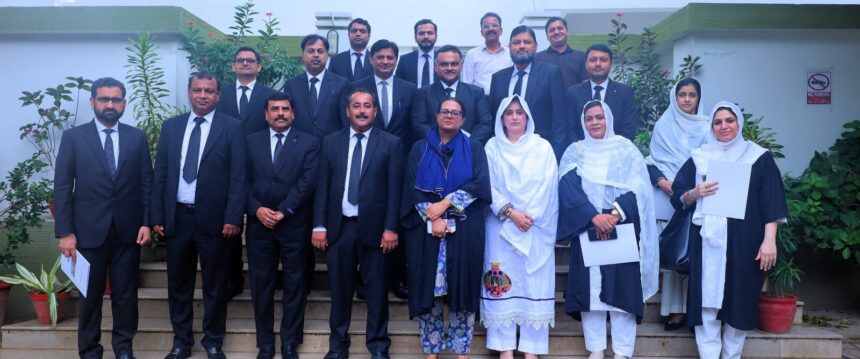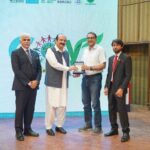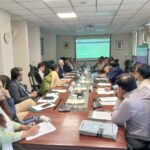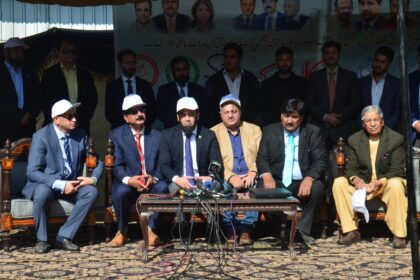A two-day training program organized by the Sindh Judicial Academy in collaboration with UNICEF brought together judges to deepen their understanding of child protection laws and improve judicial responses to offences involving children. The second day focused on statutory frameworks, implementation challenges, and contemporary issues such as child trafficking, child labour, child marriage, sexual violence, and technology-facilitated abuse.
Senior faculty and academy judges led the sessions. Presenters on the second day included Mr. Naveed Ahmed Soomro, District and Sessions Judge and senior faculty member at the Sindh Judicial Academy, along with Ms. Ena Junejo and Mr. Noor Muhammad Kalmati, both Additional District Judges at the Academy.
The first session examined how children come into contact with the law and the role of the Sindh Child Protection Authority Act in safeguarding their rights. Presenters reviewed laws addressing child trafficking and smuggling and discussed the legal prohibition on child marriage under the Sindh Child Marriage Restraint Act, 2013, highlighting practical difficulties encountered in enforcing the ban and protecting vulnerable children.
The second session addressed the implementation of the Employment of Children Act, 2017. Trainers focused on the statutory provisions, enforcement mechanisms and the challenges judges face when interpreting and applying the law to prevent child labour while ensuring fair judicial processes.
The third session explored judicial responses to specialised offences affecting children, including sexual assaults and technologically facilitated violence. Discussions covered legal tools and procedural approaches to investigate, prosecute and adjudicate cases involving online exploitation and other modern forms of abuse, emphasizing the need for informed, child-sensitive judicial practices.
The program aimed to strengthen the judiciary’s capacity to apply child protection statutes effectively and to promote coordinated, rights-based responses to the complex legal and practical issues affecting children.











